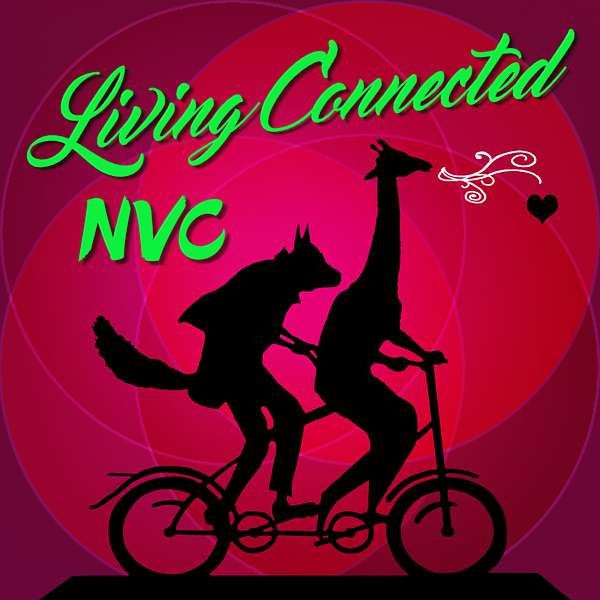
Living Connected - NVC
Kady, Eric, Kyle and Guests are here to talk about how Nonviolent Communication (NVC) can be implemented into your daily lives. NVC is a communication modality developed by Marshall Rosenberg. It focuses on compassion, empathy, observations, feelings, needs & requests in order to connect with others on a deeper level. Marshall has used NVC in high intensity conflicts over seas and he talks about how powerful it is to use.
We will discuss topics all across the board and how NVC can be used in various situations. I hope we can engage you in our practice and I hope you will want to learn and spread the love of NVC like we do. There isn't a way to upload the feelings and needs chart yet. If you would like one in a PDF file please email and ask us for it and we will send one your way. If you would like to get ahold of us with any questions, scenarios or topic ideas, email us at:
LivingConnected.NVC@gmail.com
Instagram: Livingconnectednvc
Living Connected - NVC
Trauma & Children with Adinah Barlow
I see a lot of behaviors in schools that are contributed to the trauma or environment that students are experiencing. I work sometimes one-on-one with this students who are going through a lot at home. I have seen a range of behaviors from throwing chairs, running off campus, screaming, making silly noises, kicking, pulling hair, or spitting on you, withdraw or shut down, you name it. All students whether they are on the autism spectrum or just have a lot of trauma or just having a rough day, they all have needs just like we do as an adult. It can be really hard to accompany these students when each one may need something different. I don’t see students as a bad person or think that they are trying to get attention, I get curious and I truly care about what they are needing. I am there to support them in any way that I can. If we bring our judgements to the table then it makes it really hard to be present with our students. I remember that they need so much compassion, grace, kindness, love and a listening ear because some may not get that at home.
NVC has helped me so much with meeting these students where they are at and having the language to create a safe dialogue with them when they are escalated or when they have calmed down. Most often then not, I am empathically listening and giving them a reflection on what they said so they know I understand them and believe their experience. Believing ones experience doesn’t mean I agree, it means I am believing their experience as their truth. Once I can do this, we can work towards problem solving together or resolving a conflict using feelings and needs and do-able requests.
Adinah and I get to talk about what is going on with student behavior and how we can use a different lens to understand in a deeper way what is going on for these students. Trauma can have a huge impact on students. Trauma can impact the classroom and teachers. I have witnessed how trauma affects learning and growth in the classroom and I hope that I can make a small change in the way I communicate to hold space for these students.
Resources:
Adinah Barlow Website
Podcast – Project Relationship You
Adinah Barlow Facebook
1) Paul D Maclean - Triune brain theory
2) Book: The Gift of Fear - By: Gavin de Becker
3) Book: Fostering Resilient Learners (Strategies for creating a Trauma-Sensitive Classroom)
By: Kristin Souers with Pete Hall.
4) Video: Red Table Talk - Jada Smith, Deeyah Khan, Dr. Ibram X. Kendi
CONTACT INFORMATION:
Email: Livingconnected.nvc@gmail.com
Instagram: livingconnectednvc
Living Connected Facebook Page
Website: https://www.buzzsprout.com/1153175
Music is brought to you by: https://www.purple-planet.com/